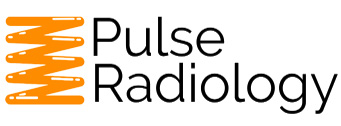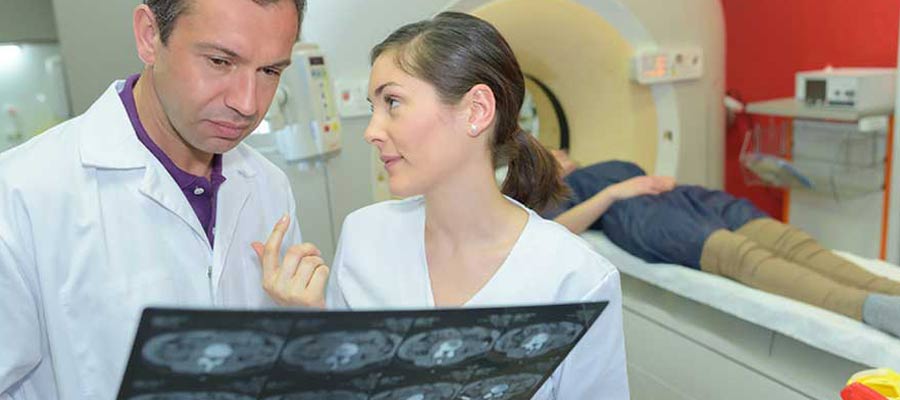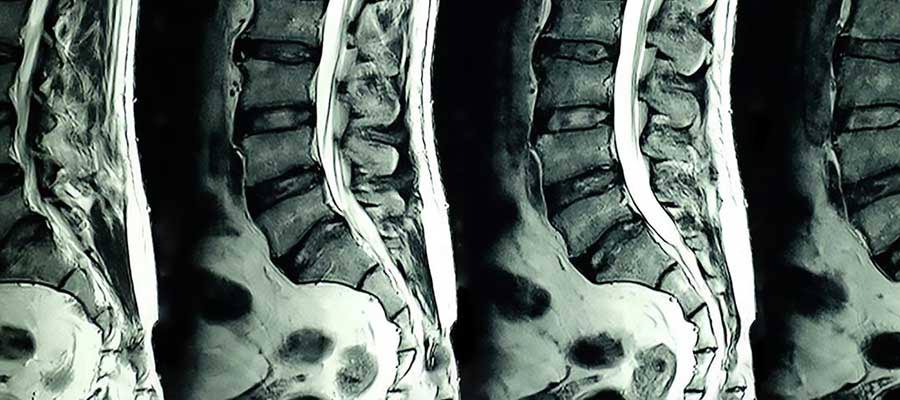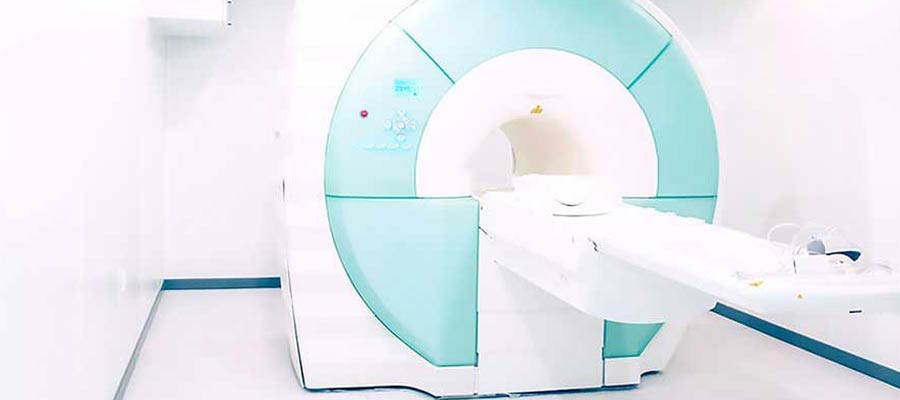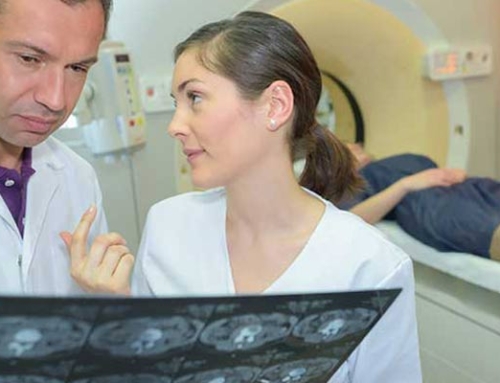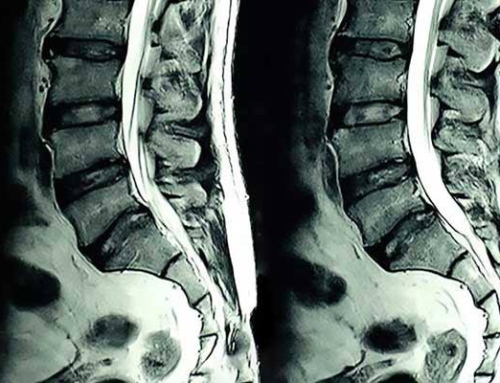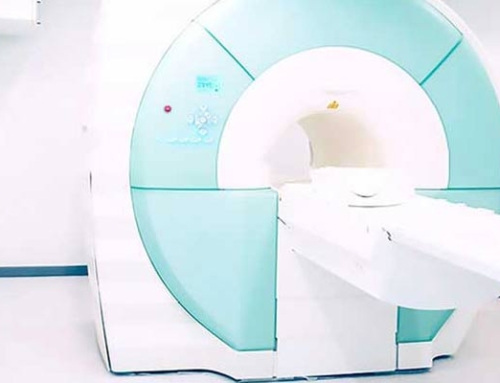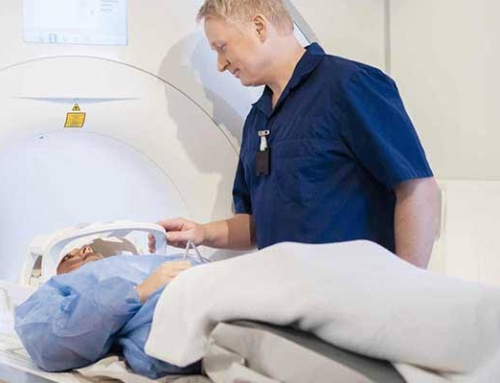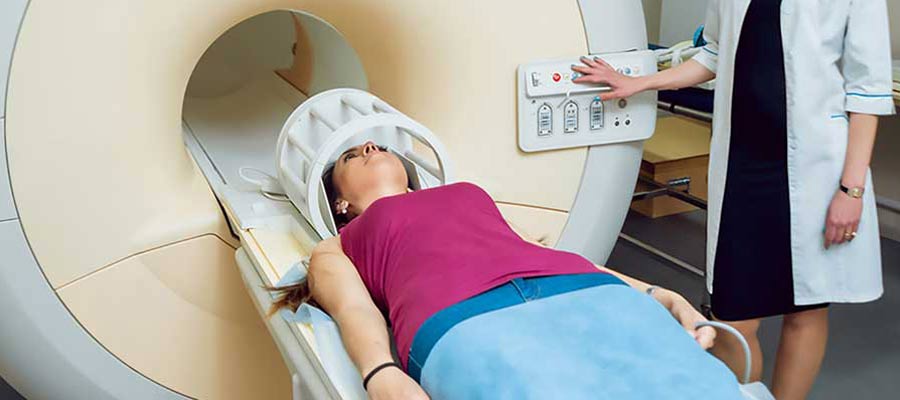
If you are thinking about a career in radiology, this article is for you. It’s important to know what topics will be covered during your training at school, so that you can decide whether it’s the right path for you. We will cover all the essential subjects that are crucial to learn at MRI tech school, including radiology principles and safety protocols alongside other key areas such as anatomy & physiology. This article is designed specifically with aspiring professionals like yourself in mind who want nothing but success when it comes time for them take on real world challenges head-on. So, keep reading.
Let’s start with what is MRI? MRI stands for Magnetic Resonance Imaging, and it is a non-invasive imaging technique that has revolutionized medical diagnosis. MRI utilizes nuclear magnetic resonance to produce detailed images of internal body structures without the need for surgery or other invasive procedures.
Because of this, magnetism and electromagnetism are fundamental concepts in MRI technology. MRI tech school will delve into the basics of magnetism by exploring magnetic fields, flux density measurement techniques as well as forces generated between different poles. Additionally, you will explore how electric currents interact with these same fields through electromagnetic theory – an essential component for understanding this technology fully. By grasping these key principles, you can gain a deeper appreciation for why MRIs work so effectively at diagnosing medical conditions accurately every time they are used.
The Basic Principles You Learn at MRI Tech School
MRI technology relies heavily on RF coils for image acquisition. It’s important to know the role these devices play in transmitting and receiving radio waves during scanning procedures. Consequently, you will learn different types of RF coils, such as surface or phased array ones. Each of these come with their own unique applications within medical imaging practices today.
In MRI technology, pulse sequences play a critical role in determining how images are acquired. This is why you will learn about these pulses and their impact on generating various types of imaging such as T1 weighted, T2 weighted or FLAIR (Fluid Attenuated Inversion Recovery) pictures. Additionally, you will learn some practical applications for different pulse sequence combinations across diverse medical scenarios.
The aforementioned concepts are the more technical things specifically related to MRI images. Consequently, understanding MRI images requires a strong foundation in anatomy and physiology. This includes essential knowledge about the human body’s major structures such as skeletal, muscular, circulatory, respiratory systems along with their functions within our overall health maintenance process. If you are going to a reputable school, such as Pulse Radiology, you will experience a comprehensive approach that covers how these various components work together to keep us fit and well balanced at all times.
As you already know, MRI is a powerful tool for diagnosing various medical conditions and pathologies. You will explore some of the most common ones including tumors, inflammation, degenerative diseases as well as traumatic injuries by analyzing their characteristic MRI findings. This knowledge will help you accurately identify abnormalities in any given image produced through this technology.
To accurately identify abnormalities in MRI images requires a thorough understanding of normal anatomy. You need detailed explanations and labeled illustrations for various body regions such as the brain, spine, musculoskeletal system, and abdominal/pelvic organs to help you develop comprehensive knowledge about what constitutes “normal” anatomical features. With this information at hand you’ll be better equipped when analyzing medical imagery.
The ability to accurately identify abnormalities in MRI images requires specialized knowledge and expertise. Pulse Radiology’s program offers valuable insights into detecting and interpreting these anomalies on scans with precision. With this training, you will be able to recognize subtle changes in signals as well as overt structural irregularities across various body regions.
MRI procedures can be daunting for some patients who may struggle with claustrophobia or anxiety. As such, it is crucial that we prioritize patient safety by implementing effective strategies to manage these concerns. These include proactive communication techniques, relaxation methods and utilizing open MRI systems when appropriate. By employing these measures you will help alleviate fears associated with the procedure while ensuring a more comfortable experience overall.
As an MRI technician, your ability to communicate effectively with patients is critical for delivering exceptional care. Building rapport and making them feel at ease during the scanning process is a valuable skill. You’ll learn how address any concerns they may have offer clear instructions while ensuring their overall well-being remains a top priority throughout every interaction you have with each patient. With these skills under your belt, you can confidently navigate even complex situations with ease.
MRI scans are generally safe procedures but emergencies can occur. You need to be prepared for such situations by acquiring the necessary knowledge and skills required in managing them effectively. An MRI tech school with a great training program will help equip you with this expertise through recognizing signs of distress initiating appropriate protocols quickly providing aid when needed while maintaining patient safety during MRI examinations. Being well informed about these measures ensures that patients receive quality care even under unforeseen circumstances.
Mastering MRI Equipment
MRI imaging requires precise patient positioning to produce high quality images. You will need detailed instructions and techniques for optimal placement in various scenarios including brain scans or musculoskeletal exams. Acquiring optimal images through MRI technology requires proficiency in operating its various components. What you learn at MRI tech school will cover everything from scanner mechanics to console functionality and imaging software nuances. They will help you hone your skills by teaching how adjustments can be made for image quality control while also addressing technical issues that may arise during use. The experts will provide guidance on troubleshooting techniques, calibration checks become second nature, ensuring smooth operation every time.
Furthermore, selecting the appropriate imaging parameters and pulse sequences is crucial for obtaining accurate diagnostic information. Different body parts require specific adjustments to achieve optimal image quality and accuracy in diagnosis. The school will provide guidelines on how best to customize your imaging settings based on what part of the body you are examining as well as any suspected pathology present. Whether it be brain or spine related issues, musculoskeletal disorders or abdominal/pelvic organs, they will teach you all about optimizing acquisition methods so that every area receives equal attention during scanning procedures.
Another thing that is important to learn are contrast agents. These are actually an essential component in enhancing certain structures and pathologies on MRI images. You will explore the principles behind contrast agents’ interaction with magnetic fields to help you understand why they play such a crucial role in medical imaging technology today. The curriculum will cover when and how these agents should be used for optimal results while also highlighting their benefits as well as limitations. By understanding this critical aspect of modern medicine, you can make informed decisions about your own healthcare needs or those of loved ones who may require similar treatment options.
While rare, contrast reactions can still occur in some patients. As a healthcare professional, you must be able to recognize the signs and symptoms of these adverse events as well as implement appropriate management steps swiftly and effectively minimizing any potential harm caused by them. This is an essential skill that will be taught during your program so that you are fully equipped with knowledge on how best handle such situations should they arise.
The Procedures and Protocols You Learn at MRI Tech School
Brain MRI is a crucial tool in modern medicine for diagnosing various neurological conditions. So, let’s explore the standard protocols used by medical professionals when conducting brain MRIs on patients with different clinical indications, such as stroke, tumors or multiple sclerosis. This also includes pulse sequences and imaging parameters required to capture accurate images of specific areas within the brain. It is also worth discussing the anatomical coverage needed during scanning procedures. By understanding these key aspects, you can gain insight into how doctors use advanced technology like MRI machines effectively.
For example, MRIs can diagnose spinal pathologies. This is why it’s important to know how to select the right sequence positioning considerations and imaging planes needed to capture comprehensive images of your patients backbone in order to accurately detect various conditions affecting it. This knowledge will help you make informed decisions about treatment options based on precise diagnostic results.
There’s also a musculoskeletal MRI, which is an essential tool for diagnosing joint and soft tissue pathologies. In order to become proficient in this area of imaging technology, you will need to learn about standard protocols used during musculoskeletal evaluations such as those performed on shoulders, knees or hips. These include specific parameters for each region along with sequence selection techniques tailored specifically towards achieving optimal results from your scans. As a result of attending classes at an accredited MRI tech school, you’ll gain valuable knowledge that can help improve patient outcomes through accurate diagnostics.
It is clear that there are many things to learn at an MRI tech school. You will be exposed to a variety of essential topics that equip you with the knowledge and skills required to become a proficient MRI technologist. Fortunately, Pulse Radiology offers a comprehensive program designed to support students in their academic path to becoming MRI technologists. Check out the programs today to see what fits best for you.
